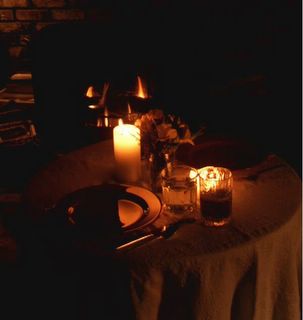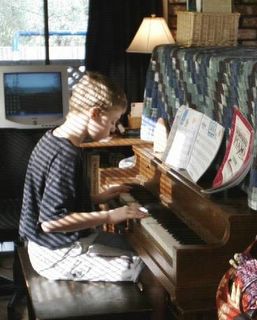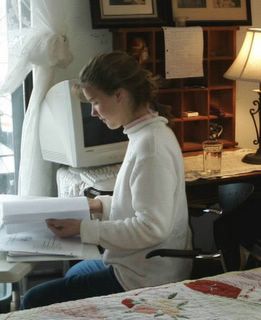from: A Book of Days for the Literary Year
Bishop:
That is right
But my friend, you left so early
Surely something slipped your mind
You forgot I gave these also
Would you leave the best behind?
So, Messieurs, you may release him
For this man has spoken true
I commend you for your duty
And God's blessing go with you.
But remember this, my brother
See in this some higher plan
You must use this precious silver
To become an honest man.
By the witness of the martyrs
By the Passion and the Blood
God has raised you out of darkness
I have bought your soul for God!
from: Les Miserables (1987 Original Broadway Cast)
"I was writing just now to Cosette. She will find my letter. To her I leave the two candlesticks on the mantel-piece. They are silver, but to me they are made of gold, of diamonds; they change the candles placed in them into consecrated tapers....
My children, I can no longer see very clearly. I had several things to say to you, but no matter. Think of me a little. You are blessed beings. I know not what is the matter with me, but I see light. Come hither. I die happy. Let me lay my hands on your beloved heads."
from: the book by Victor Hugo
I have seen Les Miserables on stage twice, and would hurry to another night of it if I could. The music is fabulous, and the story has been a force for change in my life. We share our passion with a few close friends. You know, the sort that want to be buried with their bibles and a copy of Les Miserables, or that inspire you to search the antique stores to find an affordable pair of silverplated candlesticks for Christmas. Friends with whom you can collapse around the room, turn up the volume, and sing along with Jean Valjean, Fantine, and the rest of the cast. It's a story with themes and messages that can provide many an hour of discussion.
One final recommendation on the Les Mis. theme. Focus on the Family Radio Theatre has several dramatizations of literature. Their Les Miserables was an excellent introduction for our younger listeners, and made for the shortest drive home from Yosemite I have ever had.
Happy Birthday, Monsieur Hugo.



































